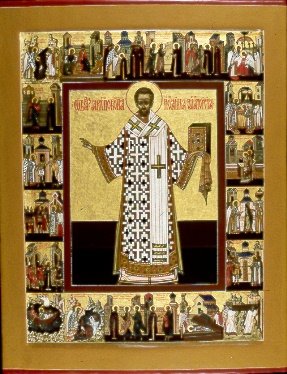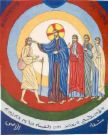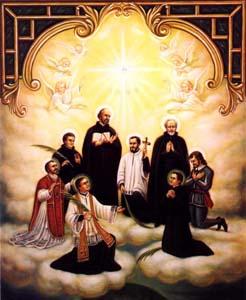
There's a reason why he was called Chrysostom, golden mouthed, and one can see how he could get himself exiled from the Imperial Capital. He really tells it like it is.
From St. John Chrysostom http://www.chrysostom.org/ (around 345-407), Archbishop of Constantinople
Homily 20 on the Acts of the Apostles
Being yeast for the world
Nothing is more derisory than a Christian, who does not care for the salvation of others. You cannot here plead poverty: for the poor widow that put in two small coins, shall be your accuser (Mk 12:42). And Peter said to the crippled man: "I have neither silver nor gold." (Acts 3:6) And Paul was so poor, that he was often hungry. You cannot plead lowness of birth: for the apostles too were simple men, and of simple parentage. You cannot allege want of education, for they too were unlearned. Even if you were a slave and a runaway, you could perform your part; for such was Onesimus, yet how much Paul honors him (Phl). You cannot plead infirmity, for such was Timothy. No matter who we are, everyone can profit his neighbor, if he will fulfil his part.
Consider the trees in the forest, how strong they are, how fair and of great height. But if we had a garden we would much rather have pomegranates, or fruitful olive trees. Fair trees but unfruitful…, such are people who only consider their own interest… If the leaven mixed up with the flour did not change the whole into its own nature, would such a thing be leaven? If a perfume shed no sweet odor on those who approach it, could we call it a perfume? Therefore, don't say, "It is impossible for me to be a good influence on others".
For if you are a Christian, it is impossible not to: it is the very nature of Christians… For it is easier for the sun not to give heat, nor to shine, than for the Christian not to send forth light."








